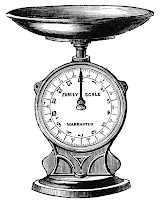We tend to think of the current era as the heyday for cookery so it comes as a surprise to discover that one hundred years ago was also a boom time for food manufacturers, publishers and authors and few were more prolific than Charles Herman Senn.
Charles Herman Senn was born in Switzerland, in 1864 and died in 1934. He received a classical cookery training in Europe and later under the renowned chef Francatelli at the Reform Club in London. Senn was one of the founders of the Universal Cookery and Food Association and edited the association’s year-book, The Cookery Annual, from its first publication in 1894. In 1892 he was made Consulting Chef to the National Training School for Cookery, one of the most influential schools of its time, he was also a leading light in the Westminster Technical Institute from its founding in 1910, creating the syllabus and establishing the examinations. He also lectured and gave cookery demonstrations to the wider community.
These are some of his books:
The amateur cook's manual
Ye art of cookery in ye olden time
Breakfast and supper dishes
Chafing dish and casserole cookery
Cookery for the sick and convalescent
Cooking in stoneware (casserole cookery)
How to cook vegetables
Ices, and how to make them
Ideal breakfast dishes, savouries and curries
Light fare recipes
The "Main" cookery book
Manual for diabetic diet and cookery
Meatless fare and Lenten cookery
The new century cookery book
The paper-bag cookery manual
The people's kitchen
Popular breakfast dishes and savouries
The popular cookery book of French and English dishes
The practical cookery manual
Practical gastronomy: French menus
The menu book and check-list of dishes
Practical household recipes from "Lessons in plain cooking"
Recherche2 entrees
Luncheon & dinner sweets including the art of ice making
Savoury breakfast, dinner & supper dishes.
Senn's culinary encyclopaedia
A pocket dictionary of foods and culinary encyclopaedia
Dictionary of foods
Senn's egg cookery
How to cook eggs and omelets in 250 different ways
Simple cookery for the people

